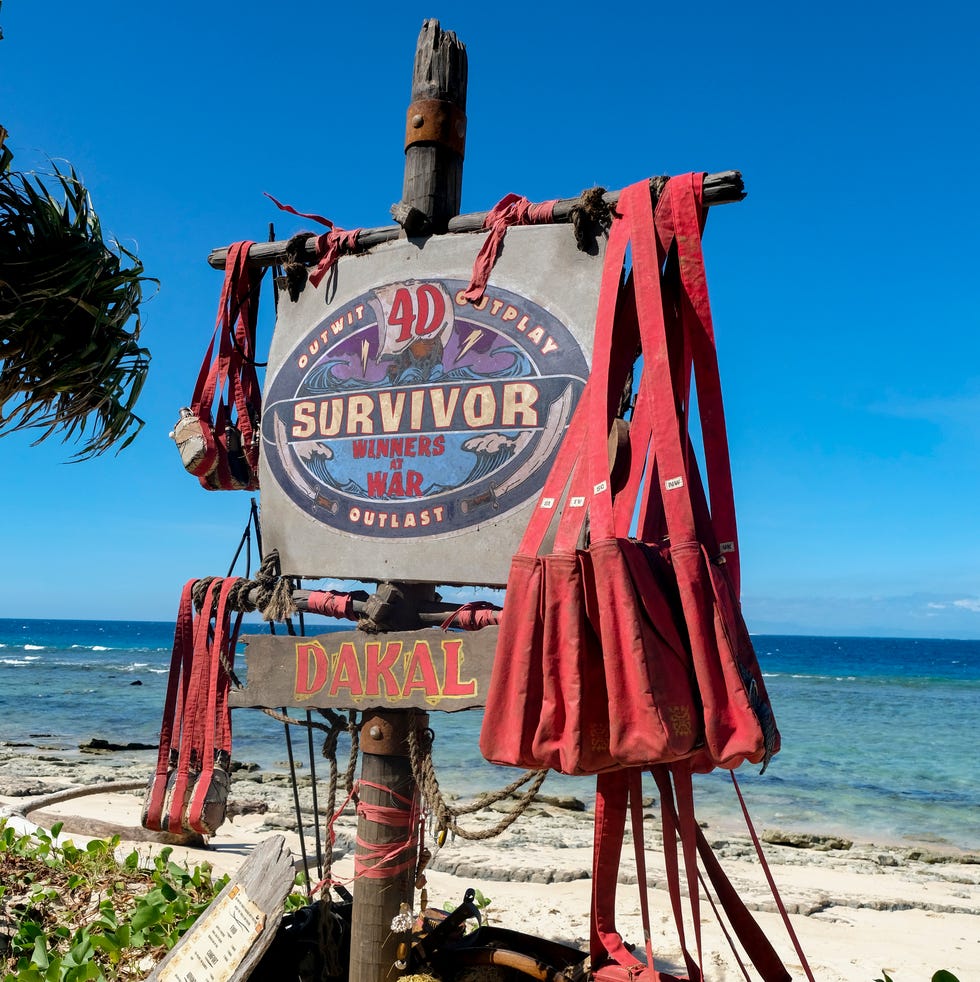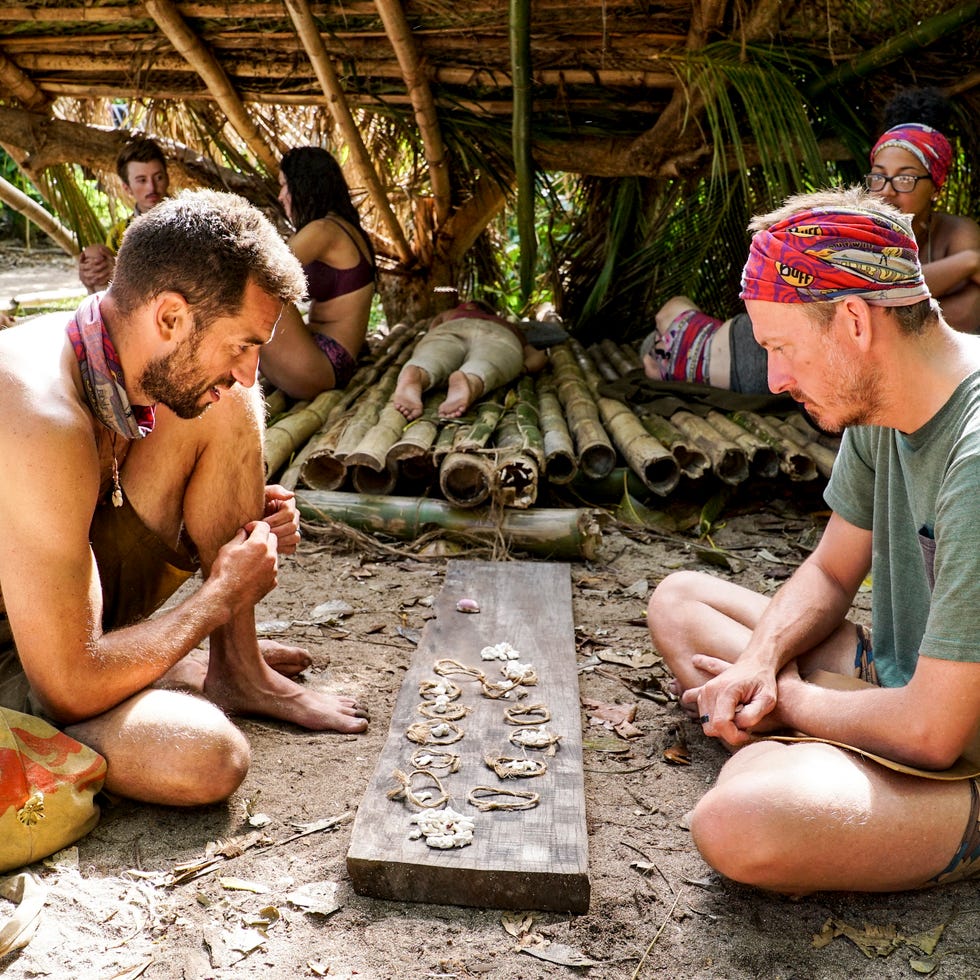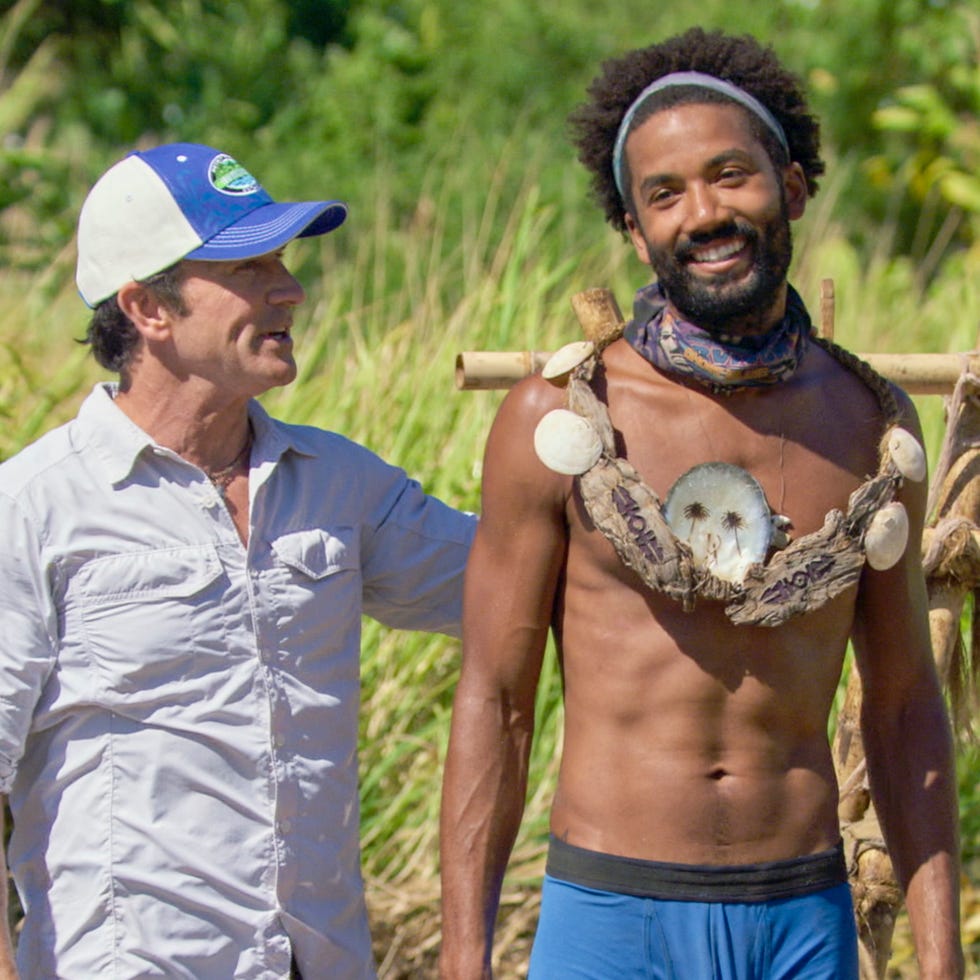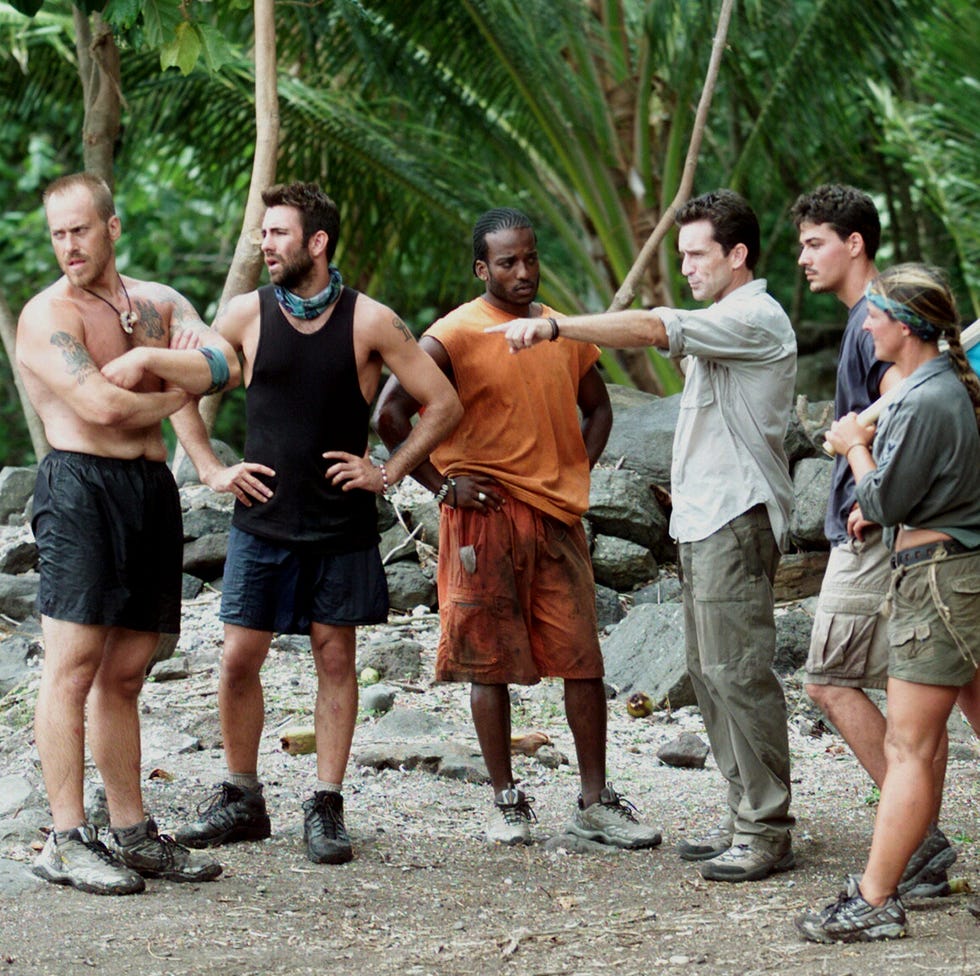They have to fill out a ton of paperwork before hitting the island.
 CBS Photo Archive//Getty Images
CBS Photo Archive//Getty ImagesThe show's production team doesn't take any risks—they make sure each contestant has dotted the i's and crossed the t's on their contract before they start filming.
"Survivor School" is in session before filming.
 Getty Images
Getty ImagesAll cast members must attend classes led by a seasoned producer to prepare for the game before shooting starts. They learn things like jungle safety, basic shelter building, and how to make a fire.
Advertisement - Continue Reading Below
They must disclose all of their medical history.
 CBS Photo Archive//Getty Images
CBS Photo Archive//Getty ImagesIncluding all medications.
 Getty Images
Getty ImagesVital medications are allowed, but the show's medical team needs to be informed beforehand. In 2022, Jackson Fox was removed from the game after failing to disclose that he was taking lithium until the day before filming started. "The cumulative effect of this show would have a potentially very bad impact on you, and we don’t want that," host Jeff Probst told Fox in the episode.
Advertisement - Continue Reading Below
They must be at least 16 years old to apply.
 Getty Images
Getty ImagesWhile the minimum age is 16 years old, there's no maximum age limit. The late Rudy Boesch, who competed in the very first season of the show, was 72 when he was cast.
Personal items are limited.
 CBS Photo Archive//Getty Images
CBS Photo Archive//Getty ImagesEach contestant is allowed to arrive at the camp site with two handheld items—and nothing more. These are called "luxury items," and are supposed to be things that bring emotional comfort, such as family photos or meaningful jewelry.
Advertisement - Continue Reading Below
Most toiletries are forbidden.
 CBS Photo Archive//Getty Images
CBS Photo Archive//Getty ImagesThere's a reason the cast members leave their location looking scruffy: the contestants are stripped of toiletries like razors, hairbrushes, and toothbrushes. The only things they do have access to are important necessities like medication, sunblock, insect repellent, or contact solution.
Clothing has to be pre-approved.
 CBS Photo Archive//Getty Images
CBS Photo Archive//Getty ImagesAdvertisement - Continue Reading Below
Contestants can't wear logos on television.
 CBS Photo Archive//Getty Images
CBS Photo Archive//Getty ImagesThere's a reason you don't see anyone rocking t-shirts with their favorite sports teams or brands. The show has strict rules against shirts or caps with logos on them.
Everyone has to abide by local and U.S. laws.
 CBS Photo Archive//Getty Images
CBS Photo Archive//Getty ImagesEven though contestants are usually isolated in the wilderness in foreign countries, per their contract they still have to obey all laws set forth by both the local and the United States government.
Advertisement - Continue Reading Below
Contestants have to compete in tribes.
 CBS Photo Archive//Getty Images
CBS Photo Archive//Getty ImagesUpon arrival, the show splits the contestants into tribes and they compete against the opposing tribe for elimination immunity and rewards before it becomes an individual competition. Usually there are only two tribes, but producers can split the contestants into as many as they want.
No visiting the other tribe's camp.
 CBS Photo Archive//Getty Images
CBS Photo Archive//Getty ImagesCast members are not allowed to visit the opposing tribe's camp or communicate with them in any way. Doing so is grounds for elimination.
Advertisement - Continue Reading Below
Some zones are off-limits.
 CBS Photo Archive//Getty Images
CBS Photo Archive//Getty ImagesThe contestants don't always have miles of land to roam, even though it may seem that way. There are a number of areas that are off-limits, including a "small section where we keep extra camera gear and things like that," Probst told People.
They can't purposely injure another contestant.
 CBS Photo Archive//Getty Images
CBS Photo Archive//Getty ImagesAdvertisement - Continue Reading Below
Contestants can't steal from one another.
 CBS Photo Archive//Getty Images
CBS Photo Archive//Getty ImagesThey can't take anyone else's private property—that includes personal luxury items, clothing, and anything given to contestants by the producers.
But they can search through someone's belongings.
 CBS Photo Archive//Getty Images
CBS Photo Archive//Getty ImagesAh, a loophole. Think your tribe mate might have a hidden immunity idol tucked away? While stealing is prohibited, contestants have searched through one another's things in the past. There's nothing in the rules that says they can't take a quick look, so long as they don't take anything.
Advertisement - Continue Reading Below
There's no tie on 'Survivor.'
 CBS Photo Archive//Getty Images
CBS Photo Archive//Getty ImagesOnly one person can take home the $1 million prize at the end. If there's a tie, a tie-breaking second vote will determine a winner.
Contestants have to follow directions.
 CBS Photo Archive//Getty Images
CBS Photo Archive//Getty ImagesIn terms of safety, it's not surprising that contestants are required to follow any and all instructions from the production crew.
Advertisement - Continue Reading Below
They agree to being filmed 24/7.
 CBS Photo Archive//Getty Images
CBS Photo Archive//Getty ImagesDue to safety concerns, the cast members are never alone in the wilderness. The show also specifically mentions in its contract that "contestants will have no expectations of privacy."
Even if they're nude.
 CBS Photo Archive//Getty Images
CBS Photo Archive//Getty ImagesContestants agree to let the show film them both nude and partially nude while they're on the show. Zero privacy means...well, zero privacy.
Advertisement - Continue Reading Below
Advertisement - Continue Reading Below
Advertisement - Continue Reading Below
































